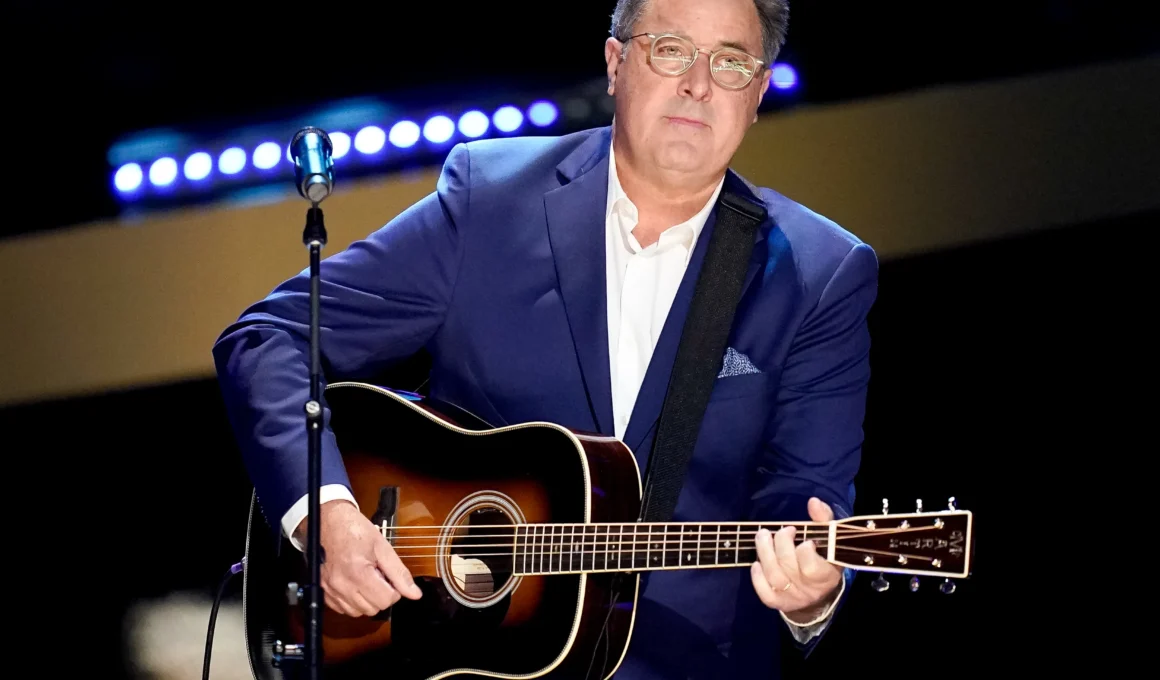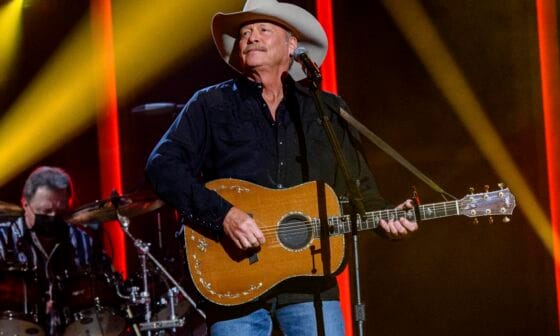Before Vince Gill played a single chord during the Grand Ole Opry’s 100th anniversary celebration, he walked up to the microphone and spoke just one sentence.
“This song is about her son.”
He wasn’t talking about himself as a country music legend. He was talking about his mother—who, like the Opry, would have turned 100 this year.
In that quiet, powerful moment, Gill transformed a grand celebration of country music history into something smaller, more personal. Suddenly, it wasn’t just about a century of songs. It was about family. About memory. About the kind of love that echoes long after the applause fades.
The room fell still.
Because everyone could feel it—this wasn’t a performance. This was a gift.
One Song. One Mother. One Hundred Years.
“Go Rest High on That Mountain” has long outgrown the label of “a song.” It’s a prayer, a goodbye, a homecoming all wrapped in melody. Born from Vince’s grief and shaped by personal loss, it has become a sacred anthem for those navigating sorrow.
Gill has sung it hundreds of times. But this time, it was different.
With his mother’s centennial quietly woven into the occasion, Gill wasn’t just a country icon on the stage of legends. He was a son. Reflecting. Remembering. Offering thanks not with applause, but with reverence.
His voice carried that weight—not polished for the stage, but stripped back. Tender. Raw. His guitar was soft, almost hesitant, like he didn’t want to intrude on the sacredness of the moment. Every lyric felt less like a performance and more like a memory spoken aloud.
Ricky Skaggs stood at his side, just as he did on the original recording. Sonya Isaacs’ harmonies floated like smoke through the room. And the Opry choir wrapped the performance in something gentle and reverent. Yet, no matter how layered the sound, it was Gill’s voice that held the center—calm, steady, aching.
Behind them, images of country legends lost to time flickered across the screen—Loretta Lynn, Naomi Judd, Jimmy Buffett, Johnny Cash—a visual reminder that we’re always carrying ghosts, that the stage is built on the echoes of those who came before.
But Vince Gill didn’t sing for the ghosts that night.
He sang for the woman who raised the man.
When he said, “This song is about her son,” it wasn’t ego. It was remembrance. A son giving credit where credit has always been due. A nod to the quiet strength behind his story, the woman who shaped his character, his music, his voice.
Country music has always made room for two truths at once—joy and grief, presence and absence, celebration and sorrow. Vince Gill has always known how to carry both in a single note.
And on that night, at the Opry’s 100th, he gave us more than a song.
He gave us a moment.
One sentence. One voice. One legacy shared between mother and son.
“This song is about her son.”
That’s all he had to say.






